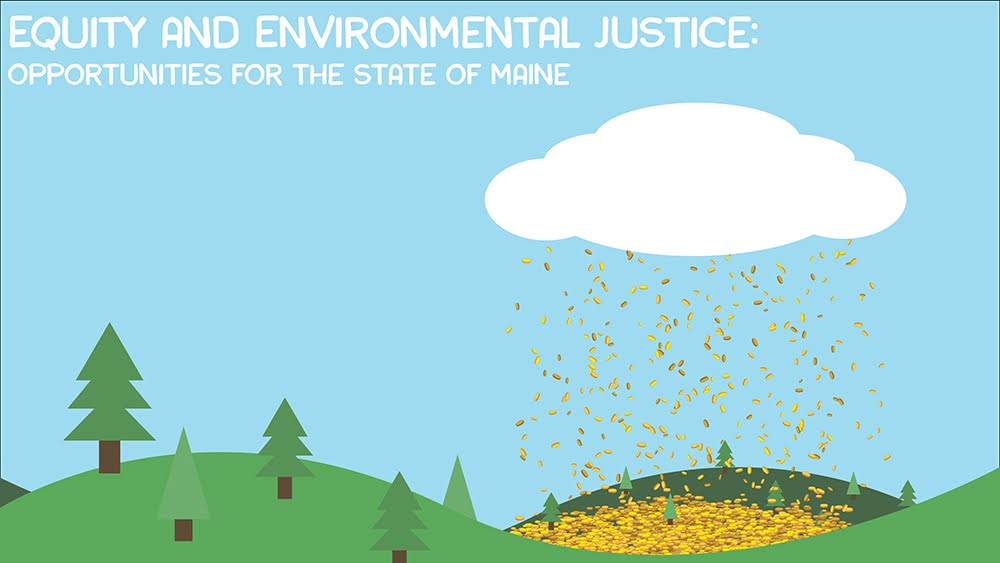On March 21, the Senator George J. Mitchell Center for Sustainability Solutions continued their Sustainability Talks series by introducing guest speaker Jessica Scott. Scott is a senior climate advisor for the Governor’s Office of Policy Innovation and the Future (GOPIF) and led her talk, “Equity and Environmental Justice: Opportunities for the State of Maine.” Scott has been working to establish climate and environmental justice for all Maine people. Scott developed programs to help establish climate goals, like clean transportation, natural and working lands and inclusion of equity and justice.
There is a lot of climate vulnerability in the state of Maine. Between discrimination, isolation and underrepresentation, residents of Maine have become more vulnerable to climate change than others. Maine has become one of the many frontline communities who are faced with the “first and worst” impacts of climate change. These communities are usually composed of low-income populations, people of color, Indigenous communities and rural and geographically isolated communities and may be the least able to adapt to climate change overall.
“I think it’s important to understand that different people experience different types of vulnerability throughout their lives,” said Scott. “Vulnerability is not constant. Nor are specific hazards experienced the same way by people experiencing intersecting challenges. We take this equitable and just approach to climate action which seeks to increase climate resources and resiliency, and those in other communities who are experiencing the first and worst impacts of climate change … are [the] most vulnerable to climate change.”
Scott then went on to discuss equity and routes of action. Equitable climate action would provide increased resources to these communities that experience marginalization and need support when facing socio-economic disadvantages and bear disproportionate impact of climate change. These resources could increase the overall wellbeing of citizens by addressing the root causes of inequality by ensuring that climate action benefits all.
Climate equity in Maine is important to acknowledge, as equal distribution of resources is not enough. To have an equitable system means providing increased resources to the disadvantaged and marginalized communities, as the risks and effects of climate change disproportionately fall on people of color and low-income populations. Policies should not exacerbate existing burdens and should overall increase the initial causes of inequality.
What this means for the Maine community is that change is imminent. People should embrace the future of electric transport, modernize buildings, grow a clean energy economy, create new jobs, build healthy and resilient communities, protect the environment and working lands and waters by increasing carbon sequestration, investing in climate-ready infrastructure, reducing carbon emissions and engaging people and communities into future opportunities.








